pan-european assessment, monitoring, and mitigation of stressors on the health of bees
Insider
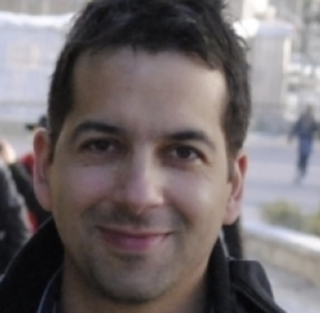
Dr Cédric Alaux
Dr Cédric Alaux from the French National Research Institute for Agriculture, Food and Environment is working to improve pesticide risk assessment in honey bees.
His main research goals are to 1) better understand how bee populations respond to rapidly changing environments; and 2) develop solutions and tools for accurate and reliable monitoring of bee populations.
Within PoshBee, he aims to evaluate the risk posed by pesticides by assessing toxicological effects at the behavioural level, and evaluating how honey bees’ sensitivity to pesticides is affected by the environment (e.g. nutrition).
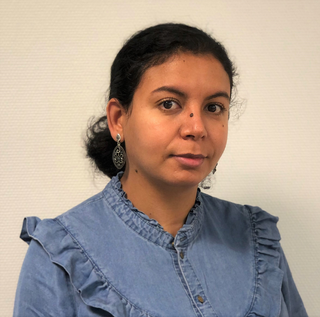
Dr Dalel Askri
Dr Dalel Askri from BioPark Archamps is investigating the molecular and proteomic impacts of stressors on bee health. She is in charge of the scientific communication within PoshBee and of preparing the material and kits for the collection of the bee blood "haemolymph" and ensuring sample traceability.
Dalel analyses the samples using MALDI BeeTyping and mass spectrometry before performing the data post-processing. She works on honey bees, bumblebees, solitary bees, and the novel wild species, and hopes to develop user-friendly diagnosis and/or prognosis tools to help the beekeepers and the sanitary services in bee health monitoring.
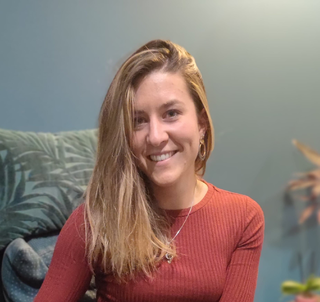
Léna Barascou, ECR
Léna Barascou from the French National Research Institute for Agriculture, Food and Environment is conducting experiments to evaluate the effects of pesticides on honey bees' health. Her main research goal is to better understand how honey bee populations respond to chemicals.
Within PoshBee, she aims to find out how the effects of pesticides on honey bees' health can be modulated by environmental or behavioural factors. Léna wishes to develop tools to better evaluate the toxicity of pesticides in honey bee colonies and hopes that her research will help improve pesticide risk assessment.
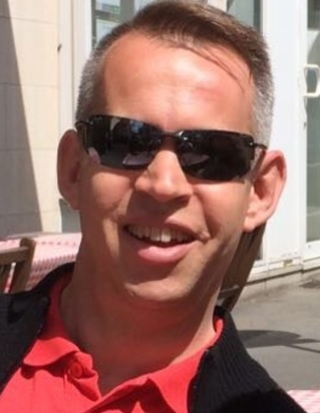
Prof Mark Brown
Prof Mark Brown from the Royal Holloway University of London is the leader and coordinator of PoshBee. His research focuses on the interaction between bumblebees and their parasites, and how agrochemicals might alter these interactions.
His work contributes to understanding how to reduce threats to bumblebee health, and thus support these important and charismatic pollinators. He feels "very lucky to be able to work on such significant questions and make a positive difference to biodiversity and conservation".
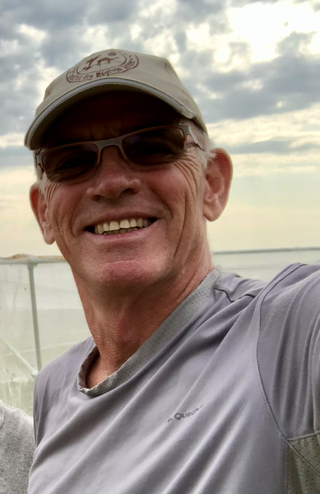
Dr Philippe Bulet
Dr Philippe Bulet from the French National Centre for Scientific Research is leading the OMICS of agrochemical responses in bees. He focuses on the development of user-friendly tools and methods to measure the molecular impact of stressors on the physiology of pollinators.
Philippe is monitoring the molecular impact of abiotic and biotic stressors alone or in combination through innovative analytical approaches. He is proposing to monitor pollinator health through a "blood" test, similarly to how Medical doctors request blood tests for prognosis and diagnosis.
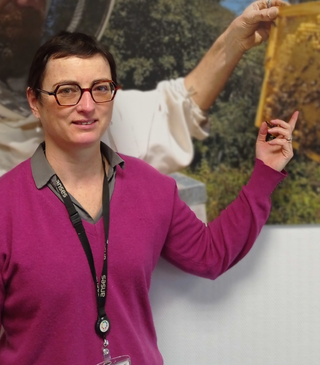
Dr Marie-Pierre Chauzat
Dr Marie-Pierre Chauzat from the French Agency for Food, Environmental and Occupational Health & Safety (ANSES) is leading the measuring of chemical exposure, pathogens, and nutrition in honey bees, bumblebees and solitary bees.
It's challenging to gather representative samples that produce reliable results. This is why, her team coordinated the distribution of hundreds of samples, developed a database storing analytical results for further analysis, and validated new methods to quantify 11 pathogens in bees and pesticides in nectar.
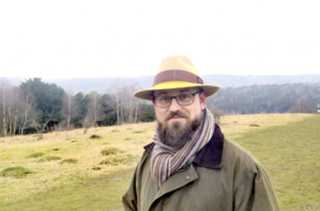
Dr Jordan Chetcuti
Dr Jordan Chetcuti from Trinity College Dublin is working on a complex bumblebee agent-based modelling (ABM). As a landscape ecologist, he conducted spatial analysis, remote sensing and IBMs to create decision support tools and plan for habitat fragmentation.
Jordan is working on PoshBee's AMaSS bumblebee model, which will serve to look at the landscape level effect of farming decisions, such as the amounts and timing of pesticide use or the use of field margins, wildflower strips and land set aside for nature. Such modelling can contribute to a deeper insight into complicated systems.
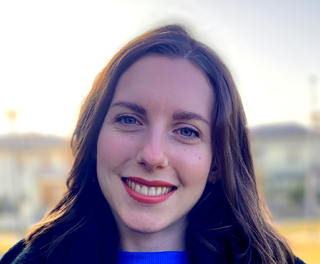
Dr Elena Cini
Elena Cini from the University of Reading is investigating how different threats may interact and affect bee health. Her PhD and work in PoshBee helped her learn a lot about ecology and, particularly, bee health. "I think you never stop learning, particularly when it comes to bee-related topics. Bees are fascinating and their world is extremely complex!"
Elena says PoshBee contributed to her academic progress and made her grow as a person "I have acquired an imaginable number of skills that, I am sure, will be useful in my future career, and I have also improved lots of soft-skills, including how to work in a big, international environment."
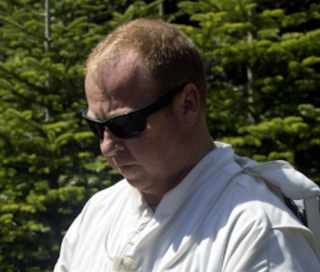
Robin Dean
Robin Dean from the Red Beehive Company is working on creating systems to make bee research easier. He has a keen interest in pollination and utilising bees as a resource to increase agricultural production.
Robin is most certainly not a lab rat, as he enjoys the outside too much. In his spare time, he manages a number of beehives and assists local beekeepers with scientific advice and expertise.
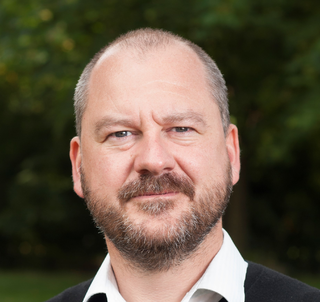
Dr Chris Hartfield
Dr Chris Hartfield is a policy adviser at NFU, where he leads on pollinator health – a role he started 14 years ago, prompted by his research background in insect ecology. He also works with Copa and Cogeca to represent all European farmers on pollinator issues.
Chris has been involved in many UK and EU pollinator strategies and projects. He joined PoshBee because he saw it was a great opportunity to better understand the interactions between different stressors on bees in real agricultural situations, and then use this to further improve farm management to benefit bees.
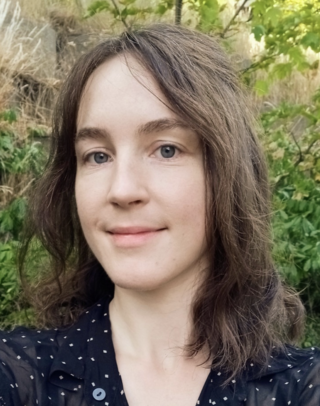
Sara Hellström, ECR
Sara Hellström is a PhD student at Martin Luther University, Germany. Within PoshBee, she explores the risks of pathogens and pesticides to solitary bees. She has conducted a number of pilot studies as well as a larger study on a common gut parasite in the model species Osmia bicornis.
Sara also develops a novel ground-nesting bee species for laboratory and field use, and explores the effects of soil contaminants on said species, something hitherto unexplored in ground-nesting bees. She appreciates PoshBee as a great consortium for meeting expertise, and has forged a number of collaborations with European laboratories.
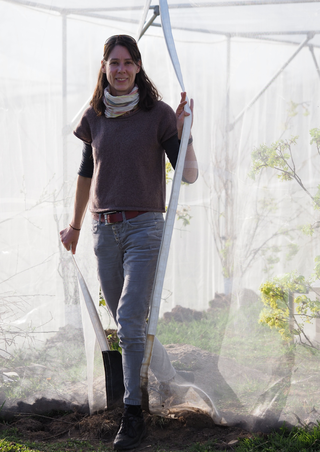
Prof Alexandra-Maria Klein
Prof Alexandra-Maria Klein from the University of Freiburg is leading the semi-field and field experiments about agrochemicals and other stressors on bee health and pollination. She studies how land-use changes influence plant-pollinator interactions, focusing on the role of wild bees and honey bees in crop pollination and production.
Her team tests agrochemicals and their interactions with nutrient stress on bees under field-realistic scenarios to obtain results matching real management conditions. Alex is grateful for the support of apple growers and other stakeholders, without whom they "would never come to policy-relevant results and conclusions".
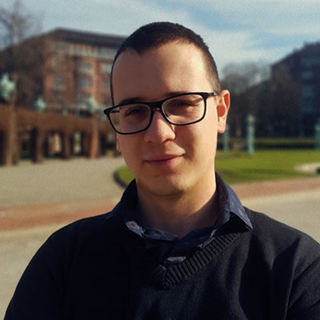
Teodor Metodiev
Teodor Metodiev, a senior science communication expert at Pensoft, holds a degree in media and communication science from the University of Mannheim, Germany, specialising in global and science communication.
Teodor is involved in the communication and dissemination of several other H2020 projects focusing on topics such as wild pollinator health, farmland birds conservation, natural use of microbiomes, long term ecosystem research and research integrity. Within those projects, he is actively participating in the preparation and implementation of long-term, multi-channel communication, dissemination & exploitation strategies.
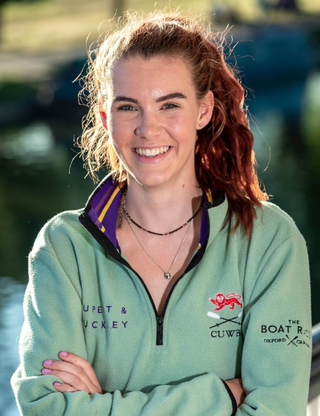
Morgan Morrison, ECR
Morgan from the Royal Holloway University of London is researching the effects of pesticides on bumblebees and how they might interact with the effects of parasites. She focuses on an important stage in the life cycle of bumblebees - when queens start colonies, which then go on to form the bumblebee population each summer.
Morgan loves "working with the fluffy, fascinating species that are bumblebees and nothing beats the feeling of having your first worker emerge from colonies you take care of!" and hopes her work can guide bee conservation.
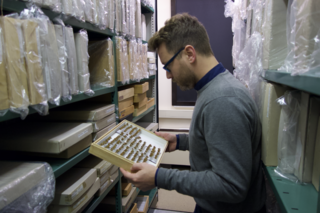
Prof Denis Michez
Prof Denis Michez from the University of Mons studies how bee diversity evolved at population and upper taxonomic levels, considering fossils, molecular phylogenies, phylogeography and bee-plant chemical interactions.
His team researches the interaction between pesticides and nutrition in bumblebees. It's vital to understand the impact of multiple bee stressors since a good diet, pollen and nectar, might help bees cope with agrochemicals exposure. Denis says everybody can help save the bees: eat more organic food, and give space to wildflowers in your garden.
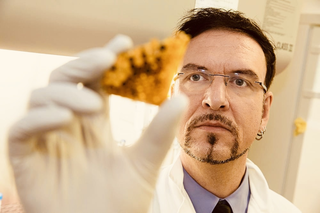
Dr Peter Neumann
Dr Peter Neumann is a Professor in Bee Health at the Institute of Bee Health, Vetsuisse Faculty, University of Bern. Since 2008, he is also a Chair/President of COLOSS, which as of October 2022, has over 1900 members from over 100 countries.
Peter has over 30 years of field and laboratory experience on all continents (except Antarctica) in social insect ecology and evolution with a focus on honey bee pathology and ecotoxicology. He has published over 200 articles in international peer-reviewed journals, won over 50 major grants as principal investigator and has supervised 28 PhD and 80 MSc students.
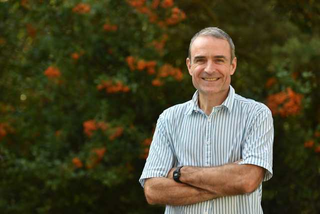
Prof Robert Paxton
Prof Robert Paxton from Uni Halle is developing model wild bee species as alternative models for testing plant protection compounds on non-target organisms. He studies the evolutionary ecology of insects and says that to stop the decline of biodiversity, it is necessary to know whether the toxicity data for honey bees is transferable to wild bees and other non-target insects.
Additionally, Robert highlights that it is urgent to act now because “there is a surprising diversity of wild bees in Europe, many completely unstudied” that may otherwise vanish from our landscapes.
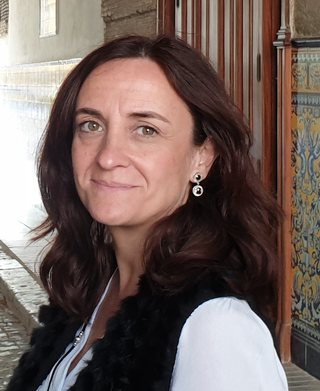
Prof Pilar de la Rúa
Prof Pilar de la Rúa from the University of Murcia is analysing the genetic diversity of bees, focusinf on the identification of locally adapted populations that are most responsive to environmental changes. Her team is one of eight teams providing samples of and from bees for PoshBee's pan-European experiments.
She thinks PoshBee is an opportunity to gather information from countries important for beekeeping, which are facing major environmental changes. Pilar is grateful for the commitment of farmers and beekeepers who provided the hives for the experiments. She hopes the obtained results will be used in the definition of good beekeeping practices.
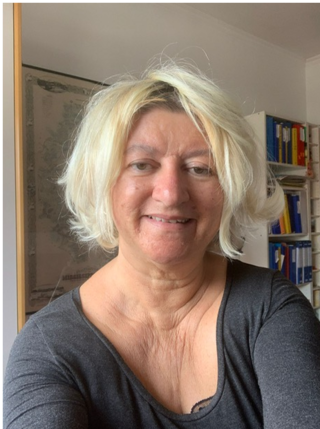
Annalisa Saccardo
Annalisa Saccardo is a policy advisor at the environmental department of Coldiretti, thus focusing her activity on sustainable agriculture legislation.
We all know how important pollinators are for our survival and agricultural activity, which gives us the precious commodity of food. Annalisa hopes that Poshbee's research helps to build a sustainable coexistence between farming and pollination.
Bees are essential for many products and services and we must all be their guardians: even those who live in the city can plant the flowers loved by bees in their garden or balcony.
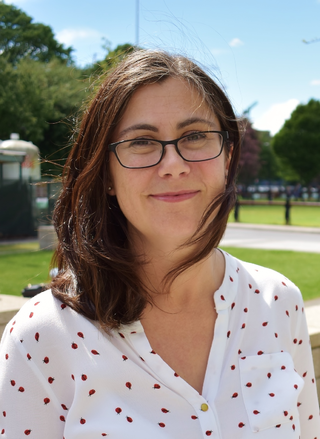
Prof Jane Stout
Prof Jane Stout from Trinity College Dublin is leading the implementation of a site network across 8 countries, incorporating Europe's main biogeographic zones. She researches the drivers and consequences of wild pollinator decline, and possible actions for pollinator conservation. Her team investigates how on-farm features and landscape factors influence individual bee behaviour, bee populations, available floral resources, and resource quality.
Jane is the co-founder of the All-Ireland Pollinator Plan, which fights for pollinator conservation across Ireland by working with communities, schools, businesses, policymakers, and more.
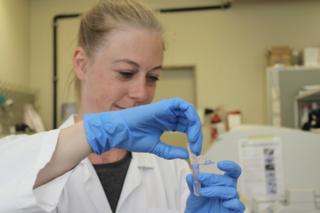
Dr Verena Strobl
Dr Verena Strobl from the University of Bern is studying how pesticides act alone and in combination with pathogens on different life stages, casts and sexes of honeybees in the laboratory. Her main research addresses stressor interactions in managed and wild bees with a strong focus on reproductive capacities.
Verena’s research within PoshBee contributes to a better understanding of bee health in our environment and the development of improved international policy and regulations. She is especially appreciative of all the students involved in this project and their great effort and valuable contributions.
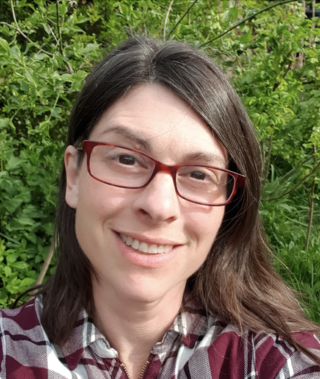
Gail Turney
Gail Turney from the Royal Holloway University of London is PoshBee’s project manager, responsible for monitoring progress, quality and risk, reporting to project funders, and ensuring the project runs to schedule.
Gail has a background in project management and habitat management and restoration, whilst her research focuses on the habitat of ground-nesting wild bees.
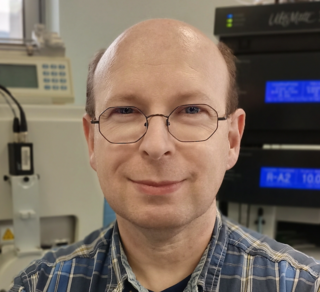
Dr Sébastien Voisin
Dr Sébastien Voisin is a protein analysis specialist working on the comparison of protein content in different samples, for example, between a bee exposed to a pesticide, and one which was not. He coordinates the protein analyses and assembles a local database of known proteins from pollinators.
Identifying the proteins produced differently in stressed bees will help recognize this stress. Previous studies have mostly focused on domesticated honeybees, and there is unfortunately a lack of data on bumblebees and wild bees. PoshBee is hopefully going to fill a part of the missing elements.
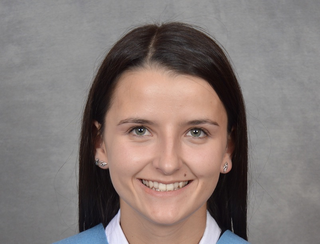
Nikol Yovcheva
Nikol Yovcheva supports PoshBee’s communication and dissemination team as a junior science communication expert at Pensoft. She has a BSc in Modern languages, cultures and communication, as well as two MSc in Communication and Information and in Digital Marketing and Communication.
Nikol is also involved in the communication and dissemination activities of several other H2020 projects focusing on topics such as forest health and farmland biodiversity.